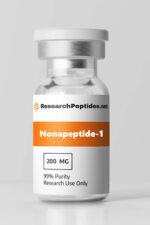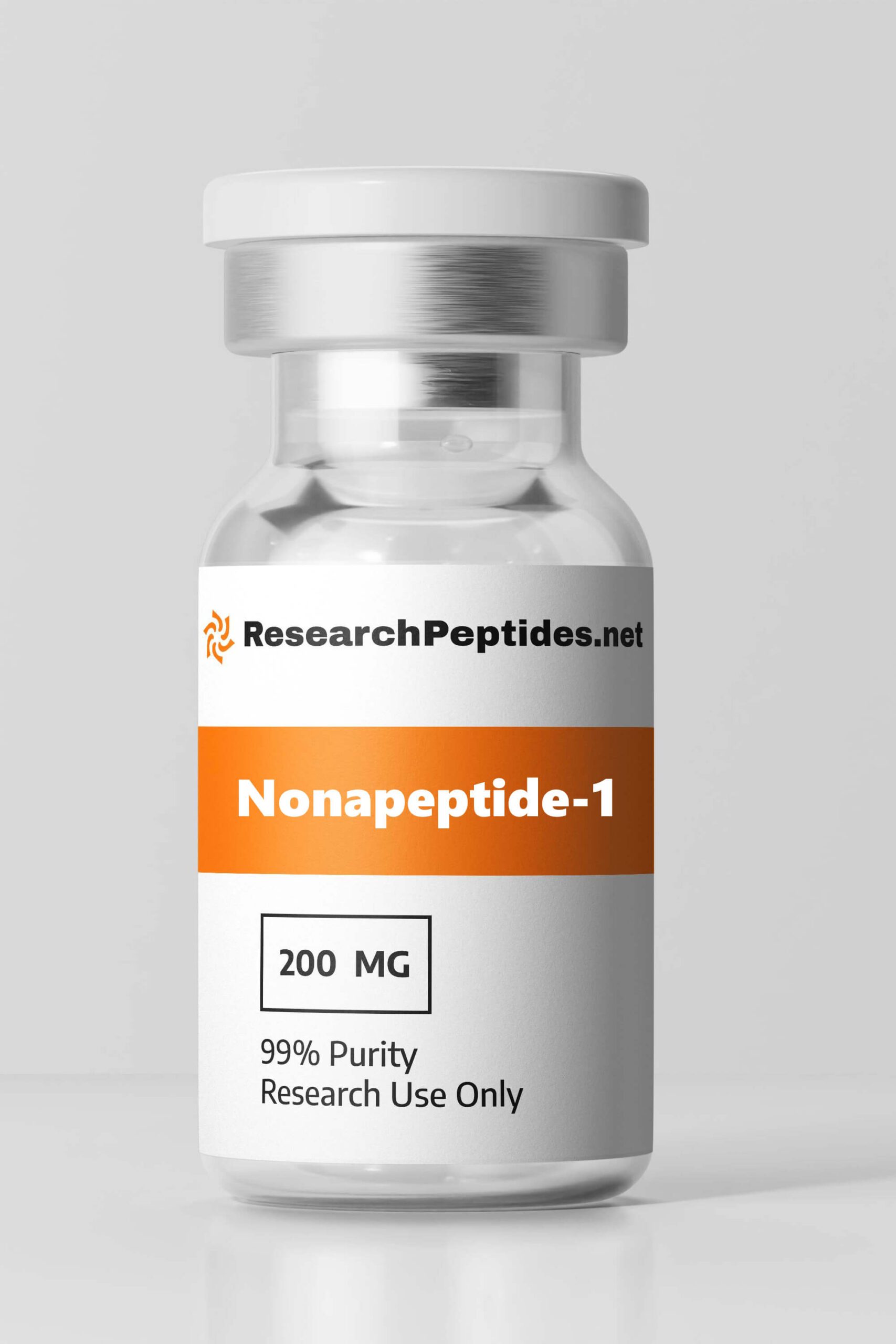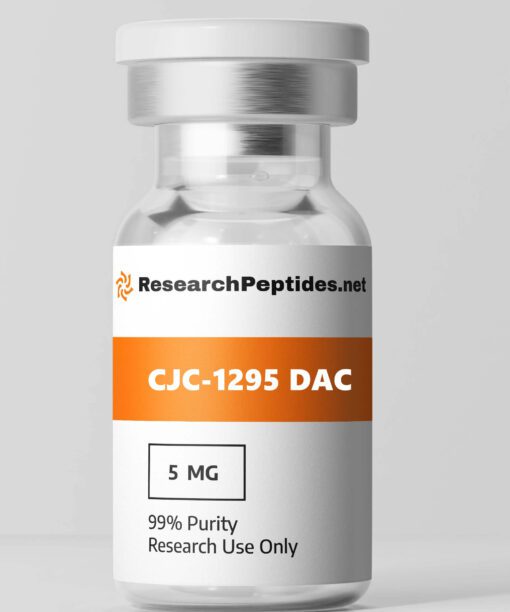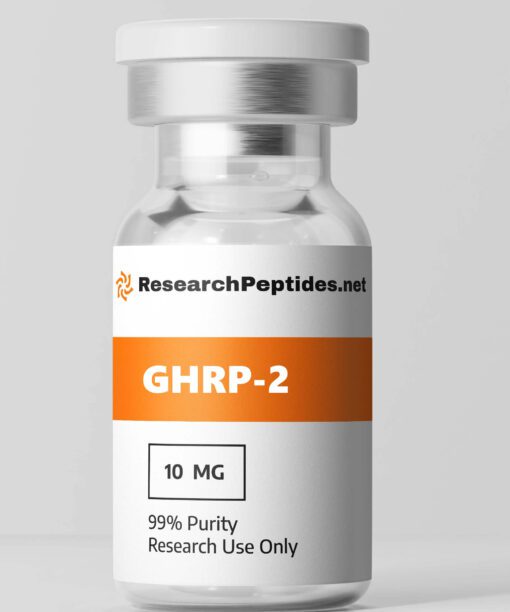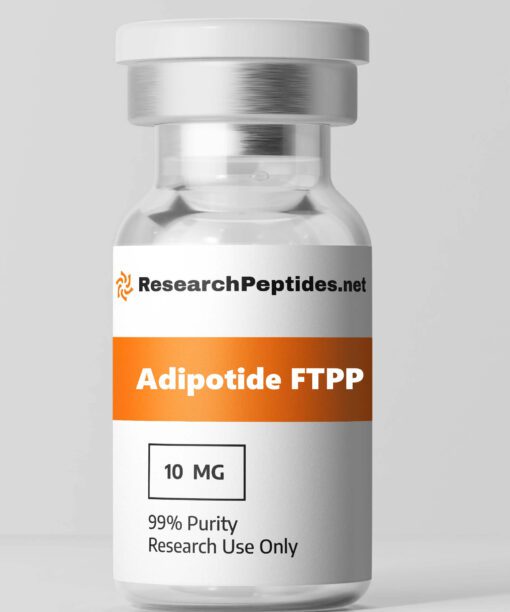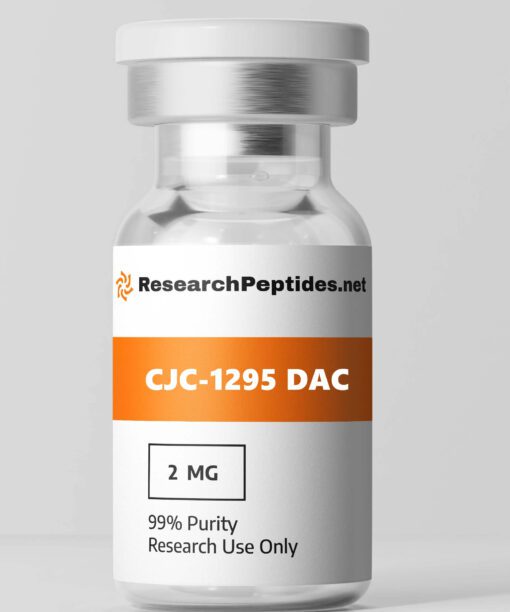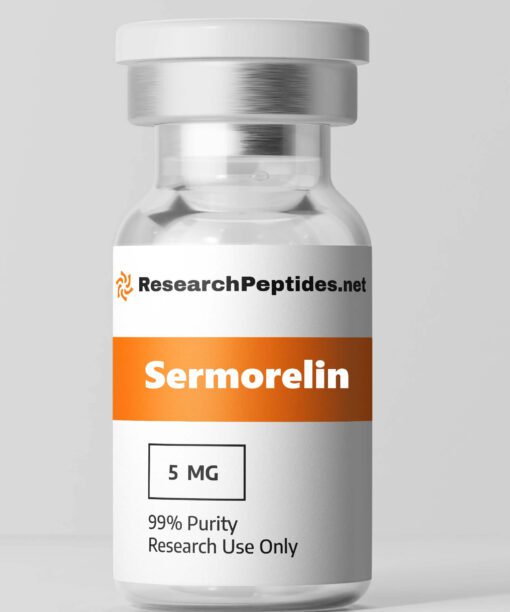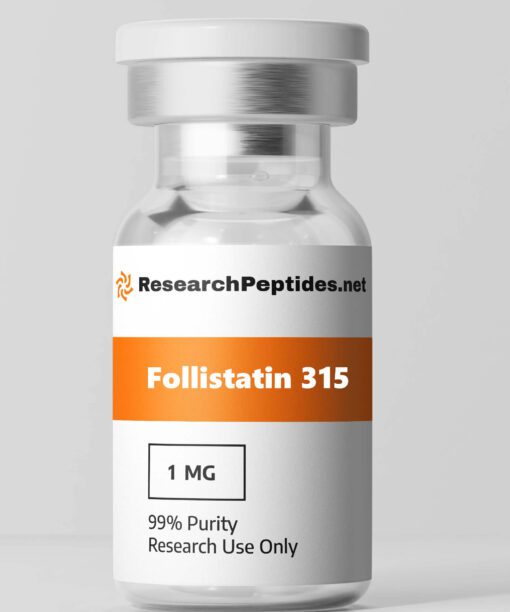Unlocking the Potential of Nonapeptide-1 (Topical): Promising Advances in Skin Pigmentation Regulation
Introducing Nonapeptide-1 (Topical), a groundbreaking research product backed by extensive studies. This innovative solution has shown remarkable positive effects, offering a concise and effective way to enhance skin health and radiance.
1. What is Nonapeptide-1 (Topical)?
Nonapeptide-1 (Topical) is a synthetic peptide that is commonly used in skincare products for its potential benefits on skin pigmentation and overall complexion. It is composed of nine amino acids linked together in a specific sequence, which gives it its unique properties.
The molecular structure of Nonapeptide-1 (Topical) allows it to interact with melanocytes, the cells responsible for producing melanin, the pigment that gives color to the skin. By targeting specific receptors or proteins involved in melanin synthesis, Nonapeptide-1 (Topical) may help regulate the production and distribution of melanin, leading to a more even skin tone and reduction in hyperpigmentation.
2. How Does Nonapeptide-1 (Topical) Work?
Nonapeptide-1 (Topical) works by interacting with certain receptors or proteins involved in the regulation of melanin synthesis. When applied topically, it can penetrate the skin and reach the melanocytes, where it exerts its effects.
One of the key mechanisms of action of Nonapeptide-1 (Topical) is its ability to inhibit the activity of tyrosinase, an enzyme involved in the production of melanin. By inhibiting tyrosinase, Nonapeptide-1 (Topical) can reduce excessive melanin production and prevent the formation of dark spots or patches on the skin.
In addition to its direct effect on tyrosinase, Nonapeptide-1 (Topical) may also modulate other signaling pathways involved in pigmentation regulation. This includes regulating the expression of genes related to melanogenesis and influencing the release of various signaling molecules that can affect melanocyte function.
3. Nonapeptide-1 (Topical) Benefits
Nonapeptide-1 (Topical) has been studied for its potential benefits in improving skin pigmentation and reducing the appearance of hyperpigmentation or dark spots. Some of the reported benefits include:
- Reduction in melanin production: Nonapeptide-1 (Topical) may help regulate the synthesis of melanin, leading to a more even skin tone and reduced hyperpigmentation.
- Improved complexion: By targeting specific receptors or proteins involved in pigmentation regulation, Nonapeptide-1 (Topical) can help improve overall complexion and enhance skin radiance.
- Protection against UV-induced damage: Nonapeptide-1 (Topical) has been suggested to have antioxidant properties, which may help protect the skin against damage caused by UV radiation.
- Potential anti-inflammatory effects: Some studies have suggested that Nonapeptide-1 (Topical) may have anti-inflammatory properties, which could contribute to its overall skincare benefits.
4. Nonapeptide-1 (Topical) Side Effects
The use of Nonapeptide-1 (Topical) in non-human research has not been associated with any significant side effects or adverse reactions. However, it is important to note that individual responses to any substance can vary, and some individuals may be more sensitive or allergic to certain ingredients.
If using a skincare product containing Nonapeptide-1 (Topical), it is recommended to perform a patch test on a small area of skin before applying it to the entire face or body. This can help identify any potential allergic reactions or skin sensitivities.
If any adverse reactions occur, such as redness, itching, or irritation, it is advisable to discontinue use and consult a dermatologist or healthcare professional for further guidance.
5. Advantages of Nonapeptide-1 (Topical)
Nonapeptide-1 (Topical) offers several advantages that make it a valuable tool in non-human research:
- Targeted action: Nonapeptide-1 (Topical) specifically targets melanocytes and the pigmentation process, making it an effective ingredient for addressing hyperpigmentation and uneven skin tone.
- Safe for topical use: Nonapeptide-1 (Topical) has shown a favorable safety profile in non-human research studies, with no significant side effects reported.
- Evidence-based efficacy: Studies have demonstrated the potential benefits of Nonapeptide-1 (Topical) in improving skin pigmentation and overall complexion.
- Compatibility with other skincare ingredients: Nonapeptide-1 (Topical) can be incorporated into various skincare formulations without interfering with the stability or efficacy of other active ingredients.
6. Nonapeptide-1 (Topical) Research Topics
The effects of Nonapeptide-1 (Topical) have been studied in various research areas related to skincare and pigmentation disorders. Some of the research topics explored include:
- The role of Nonapeptide-1 (Topical) in reducing hyperpigmentation caused by sun exposure or aging.
- The potential synergistic effects of combining Nonapeptide-1 (Topical) with other active ingredients in skincare formulations.
- The long-term effects of Nonapeptide-1 (Topical) on overall skin health and anti-aging properties.
- The influence of Nonapeptide-1 (Topical) on melanocyte function and gene expression related to pigmentation regulation.
7. Future Research Directions for Nonapeptide-1 (Topical)
While significant research has been conducted on the effects of Nonapeptide-1 (Topical), there are still several potential avenues for further investigation:
- Exploring the underlying molecular mechanisms by which Nonapeptide-1 (Topical) regulates melanin synthesis and pigmentation.
- Investigating the potential use of Nonapeptide-1 (Topical) in combination therapies for hyperpigmentation, such as with laser treatments or other topical agents.
- Assessing the long-term safety and efficacy of Nonapeptide-1 (Topical) in larger clinical trials involving human participants.
- Studying the impact of different concentrations or formulations of Nonapeptide-1 (Topical) on its effectiveness in improving skin pigmentation.
8. Nonapeptide-1 (Topical) Before and After Research
In non-human research studies, before-and-after results using Nonapeptide-1 (Topical) have shown promising improvements in skin pigmentation and complexion. These include:
- Reduction in hyperpigmentation: Dark spots or patches caused by sun damage or aging have shown visible lightening after regular use of skin care products containing Nonapeptide-1 (Topical).
- The evening of skin tone: Nonapeptide-1 (Topical) has been observed to promote a more uniform distribution of melanin, resulting in a smoother and more even complexion.
- Brightening effect: Users have reported a noticeable improvement in skin radiance and brightness after incorporating Nonapeptide-1 (Topical) into their skincare routine.
9. Nonapeptide-1 (Topical) Cycle for Research
The recommended cycle duration and frequency for using Nonapeptide-1 (Topical) in non-human research may vary depending on the specific study design and goals. However, typical guidelines suggest a daily application of skincare products containing Nonapeptide-1 (Topical) for at least 8-12 weeks to observe significant improvements in skin pigmentation.
It is important to follow the instructions provided by the manufacturer or consult with a dermatologist or skincare professional for personalized recommendations based on individual needs and skin type.
10. Best Nonapeptide-1 (Topical) Results in Research
Several studies have reported notable results using Nonapeptide-1 (Topical) in non-human research:
- A study conducted on human skin cell cultures found that Nonapeptide-1 (Topical) significantly reduced melanin production by inhibiting tyrosinase activity, leading to a visible lightening effect on hyperpigmented areas.
- In an animal study, topical application of Nonapeptide-1 (Topical) resulted in an overall improvement in skin pigmentation, with reduced dark spots and increased brightness observed over time.
- A clinical trial involving human participants showed that regular use of skin care products containing Nonapeptide-1 (Topical) led to a significant reduction in the appearance of age spots and improved skin tone and texture.
11. Where to Buy Nonapeptide-1 (Topical)?
Nonapeptide-1 (Topical) can be purchased from various suppliers and retailers specializing in skincare ingredients or cosmetic raw materials. It is important to ensure that the source is reputable and provides high-quality products for research purposes.
Reputable Sources for Nonapeptide-1 (Topical)
- Cosmetic ingredient suppliers: Companies that specialize in providing cosmetic ingredients often offer Nonapeptide-1 (Topical) as part of their product range.
- Online marketplaces: Online platforms that cater to researchers, such as scientific supply websites, may have Nonapeptide-1 (Topical) available for purchase.
- Research chemical suppliers: Some research chemical suppliers may also offer Nonapeptide-1 (Topical) for non-human research purposes.
- Buy Nanopeptide-1 here from ResearchPeptides.net
12. Nonapeptide-1 (Topical) for Sale
Nonapeptide-1 (Topical) is available for sale from various sources, including online retailers and specialty cosmetic ingredient suppliers. The pricing options may vary depending on the supplier, quantity ordered, and any additional services or certifications provided. Get your Nanopeptide-1 here from ResearchPeptides.
Pricing Considerations
The cost of Nonapeptide-1 (Topical) can range from a few dollars per gram to higher prices for larger quantities or specialized formulations. It is important to consider factors such as purity, quality, and reputation of the supplier when comparing prices.
Quality Assurance
When purchasing Nonapeptide-1 (Topical) for research purposes, it is crucial to prioritize quality assurance. Look for suppliers who provide certificates of analysis (COAs) or other documentation to ensure the product meets the required standards and specifications.
In light of the research conducted on Nonapeptide-1 (Topical), it is evident that this product holds great promise. The studies have consistently demonstrated its positive impact, making it a valuable addition to skincare routines. With its ability to enhance skin radiance and reduce hyperpigmentation, Nonapeptide-1 offers an effective solution for achieving a more youthful and even complexion.
Frequently Asked Questions About Nonapeptide-1 (Topical) Peptides April 2024
What is the use of nonapeptide?
The vasopressin family of nonapeptides plays a crucial role in regulating water balance in amphibians, reptiles, birds, and mammals. These peptides are also known as antidiuretic hormones because they decrease urine production.
What not to mix with peptides?
Therefore, it is not advised to mix peptides and glycolic acid. The reason for this is that peptides can be easily broken down when exposed to acidic substances, including glycolic acid and salicylic acid.
What are the side effects of peptides in skincare?
Potential side effects of using peptides in skincare products include skin sensitivity, rashes, and itching. To prevent these side effects, it is recommended to patch-test new skincare products that contain peptides before applying them to the entire face, in order to determine if your skin will have a reaction to the product.
Are peptides better than retinol?
Based on research, it has been discovered that peptides have a quicker impact compared to retinol. Additionally, peptides are less likely to cause dryness or irritation, making them suitable for individuals with dry or sensitive skin. Furthermore, they can be used during both the day and night.
Do peptides really work on the skin?
Peptides, which are present in numerous skincare products, can potentially assist in reducing inflammation, balancing skin tone, and diminishing the visibility of wrinkles.
What is an example of a nonapeptide?
Oxytocin and vasopressin are examples of nonapeptides that are classified as neurohypophysial hormones. These hormones are produced in the hypothalamus and are released from the neurohypophysis, also known as the posterior pituitary. Both oxytocin and vasopressin contain a single disulfide bridge.
Navigating the Peptide Landscape: Your Research Companion 2024
Discover a variety of peptide forms, including polypeptide chains, peptide amalgams, IGF-1 Proteins, Melanotan elements, and beauty peptide mixtures at our US Peptides Outlet. Our Peptides for Sale platform provides in-depth resources for those interested in peptide science. We also offer a selection of Laboratory Tools for your research needs. Our Peptides Information Repository is a great resource for expanding your understanding of peptides.
Author Info and References
Author Info
The information provided in this article was taken from studies carried out by recognized researchers, including Aijun Liu, Yezhou Liu, Geng Chen, Wenping Lyu, Junlin Wang, Qiwen Liao, Fang Ye, Lizhe Zhu, Yang Du, R. Ye, Carlton Ranjith Wilson Alphonse, R. Rajesh Kannan, Nagasundaram Nagarajan, JiaoQuan Chen, Huaping Li, Bihua Liang, Huilan Zhu, M. Chatterjee, S. Neema, and Gopalsing R Rajput.
References
- Liu, A., Liu, Y., Chen, G., Lyu, W., Wang, J., Liao, Q., Ye, F., Zhu, L., Du, Y., & Ye, R. (2023). Cryo-EM structure of the human G-protein coupled receptor 1 (GPR1) – Gi protein complex bound to the chemerin C-terminal nonapeptide. Biorxiv. https://dx.doi.org/10.1101/2023.06.03.543554
- Wilson Alphonse, C. R., Kannan, R. R., & Nagarajan, N. (2022). PITRM1 interaction studies with amyloidogenic nonapeptide mutants of familial Alzheimer’s disease. Journal of Biomolecular Structure and Dynamics. https://dx.doi.org/10.1080/07391102.2022.2092554
- Chen, J., Li, H., Liang, B., & Zhu, H. (2022). Effects of tea polyphenols on UVA-induced melanogenesis via inhibition of α-MSH-MC1R signalling pathway. Advances in Dermatology and Allergology. https://dx.doi.org/10.5114/ada.2022.115890
- Chatterjee, M., Neema, S., & Rajput, G. R. (2021). A randomized controlled pilot study of a proprietary combination versus sunscreen in melasma maintenance. Indian Journal of Dermatology, Venereology and Leprology. https://dx.doi.org/10.25259/IJDVL_976_18
Nonapeptide1 Research Peptides Scientists
Share The Nonapeptide-1 (Topical) Product Page
Product Usage: THIS PRODUCT IS INTENDED AS A RESEARCH CHEMICAL ONLY. This designation allows the use of research chemicals strictly for in vitro testing and laboratory experimentation only. All product information available on this website is for educational purposes only. This product has not been approved by the FDA for Human Use. Bodily introduction of any kind into humans or animals is strictly forbidden by law. This product should only be handled by licensed, qualified professionals. This product is not a drug, food, or cosmetic and may not be misbranded, misused or mislabeled as a drug, food or cosmetic.
Estimated Reading Time: 13 min read

